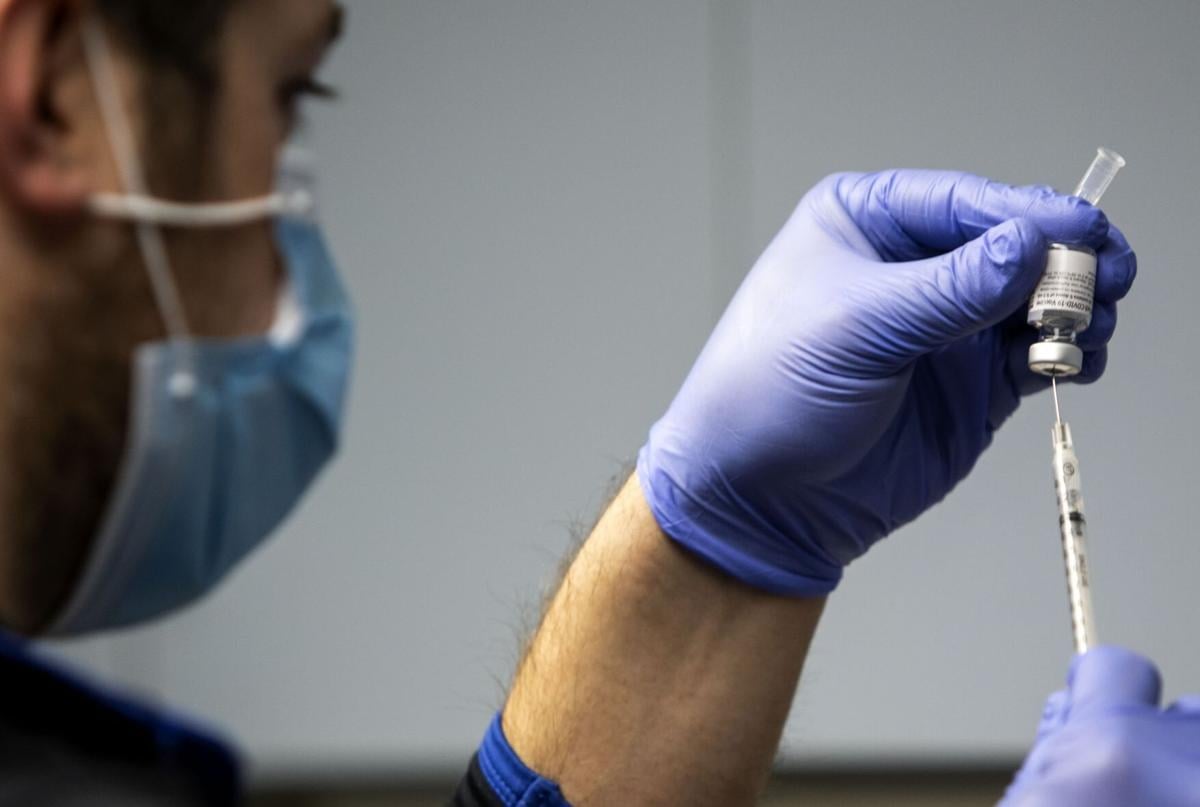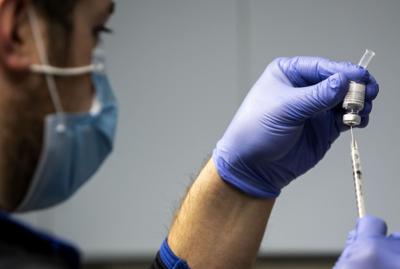Missouri is last in vaccinations.
ThatŌĆÖs what the U.S. Centers for Disease Control and Prevention is reporting as it tracks vaccinations for COVID-19 state by state. The entire nation is behind pace, due in part to the failures of the previous presidential administration to take virtually anything related to the coronavirus pandemic seriously.
But Missouri, as of Sunday, is last, with just 3.6% of its population having received the first shot of the life-saving vaccine. The delays in the Show-Me State put the state at risk of not being able to open up its economy quickly this summer, by which time it is hoped that enough of the state will have received the vaccine to move toward normalcy.
People are also reading…
ŌĆ£We need more,ŌĆØ Dr. Steven Lawrence, an infectious disease expert at Washington University, told my Post-Dispatch colleague Annika Merrilees. ŌĆ£We need speed.ŌĆØ
Unfortunately, being last in public health is nothing new in Missouri. ItŌĆÖs been that way for a long time. The average state spends $33.50 per person for various public health measures. Missouri, dead last in the nation, spends $6 per person, according to the Missouri Foundation for Health.
Dead last is a cruel double entendre, because the result of such moribund public health funding is that people die.
This manifests itself in many ways, all of them bad: high sexually transmitted disease rates in the city of ėŻ╠ę╩ėŲĄ ŌĆö regularly among the highest in the country ŌĆö and poor health outcomes in rural areas, where hospitals have been closing in droves as the state refuses to expand Medicaid to cover more poor people.
That will change this year, thanks to votersŌĆÖ action last August, though how the public health-averse Republicans who control the levers of state government decide to implement the expansion remains to be seen. This is, after all, the same state that in late 2019 and early 2020 led the nation in the number of poor children who were dropped from the Medicaid rolls, more than 100,000 at one point.
Last in funding. First in poor outcomes.
This is MissouriŌĆÖs daily reality.
On Saturday, I drove to rural Missouri for a funeral. Brooke Bergen died, likely of a drug overdose. She was 32 and leaves behind two young children. Some readers might remember her name. The Salem woman was the face of my debtors prison series of columns in 2019, the woman who ended up spending a year in the Dent County Jail for shoplifting an $8 tube of mascara from Walmart, and then came out with a $15,000 bill. Her story, and others like it, spurred state lawmakers to change the law so that poor people in Missouri canŌĆÖt be threatened with more jail time just because they canŌĆÖt afford to pay their bill for time spent in jail.
Of course, Bergen might never have served any of that jail time if the state did more to address its rampant opioid crisis. She was in jail because she was battling addiction, and a private for-profit probation company kept telling the judge she was violating her probation because of its drug testing program.
One of the reasons the opioid (and heroin) crisis is so bad in Missouri is that Republicans have blocked a statewide prescription drug-monitoring database. Missouri is the only state in the nation without one. It would also help if Missouri didnŌĆÖt rank second in the nation in putting people back in jail and prison for probation and parole violations, or if it didnŌĆÖt have the second-worst-funded public defenders system in the country, or if it took the general issue of public health more seriously.
About 30 of us attended the funeral. Three of us wore masks, while the pandemic still rages and fewer Missourians per capita are being vaccinated than any other state in the nation. But I didnŌĆÖt have to drive to Dent County to experience the sort of laissez-faire attitudes toward public health matters that leads to death among our neighbors.
My own state senator ŌĆö Andrew Koenig ŌĆö offered a prime example last week. Koenig, a Republican from Ballwin, is sponsoring a bill that would make it harder for local public health officials ŌĆö who have mostly done yeomanŌĆÖs work across the political spectrum ŌĆö to enforce strict public health orders during a pandemic. HereŌĆÖs what Koenig said at a hearing last week, at which he and most of his GOP colleagues were not wearing masks:
ŌĆ£ItŌĆÖs my choice if I want to risk getting COVID,ŌĆØ Koenig said. ŌĆ£No one is forcing anybody to stay home.ŌĆØ
Last week, Koenig was diagnosed with COVID-19. I wish him good health.
But mostly, I wish his political party would learn from the stateŌĆÖs constant race to the bottom that more often than not Missouri wins ŌĆö or loses, depending on your perspective ŌĆö in the most dubious of categories.
Timothy Wiemken, a professor and infectious disease expert at ėŻ╠ę╩ėŲĄ University, gives a brief explanation of why you should be wearing a mask, the proper way to use your mask and a few things you shouldn't do with a mask. Video by Colter Peterson, cpeterson@post-dispatch.com
Ongoing crisis with more than 130,000 in state cut from Medicaid and Medicare programs affects children, seniors and the disabled.┬Ā


























